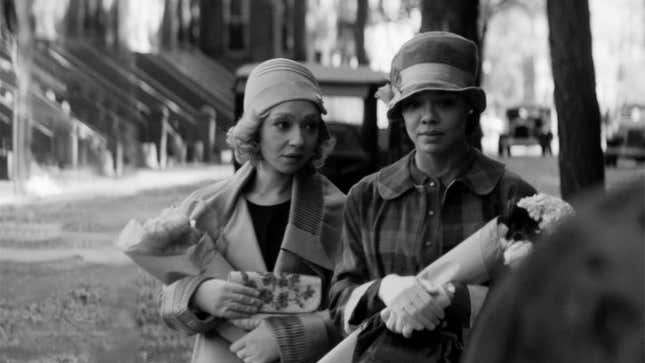
Recently, a TikTok has surfaced gaining over three million views of a white-appearing woman sharing a secret her grandmother took to her grave: she was Black. User thekennedyproj explained what she thought she knew about her grandmother was a means to survive and live a life passing as a white woman.
The woman said her family believed her grandmother was born in 1933 as Millicent Vaughn and that she was an orphan with no other family or siblings. The woman said her grandmother told the family they were English. Upon taking a 23andMe test, they found they were African American.
“23andMe matched my family up with a family in Virginia which isn’t too strange because my grandmother and my grandfather both met in Maryland and got married and ended up moving across the country. So when this family starts pulling out pictures of my grandmother and her 15 siblings … safe to say we were a little shocked,” she said.
Millicent was actually born Mammy Vaughn in 1927. Vaughn’s parents did die but she had the support of her family and siblings to take care of her, said the woman. Vaughn ran away from her family and completely abandoned her blackness, beginning a new life passing as white. Vaughn passed away in 2002, taking the truth with her.
The woman said she was heartbroken her grandmother felt the need to mask her identity but was grateful for the privilege her decision provided her. Well, that’s certainly grounds for an identity crisis. However, the truth of the concept of “white passing” has recently been misunderstood.
Historically, passing as white was a definitive choice. Between the 30s and 50s, biracial people used their appearance to their advantage and willingly stepped away from their Black roots to live life as a white person. The motives, obviously, were to live a better life and avoid the fatal consequences of being Black in America. However, it’s not so much about the person who decides to pass but rather the society that forces them to, better said by Nella Larsen.
As younger generations try to grapple with identity and race, “white-passing” is often a label slapped on almost anyone with light skin. Additionally, it is often white people who throw the term at racially ambiguous people. White-passing is an act rather than an adjective. It is intentional, not a coincidence. It’s more than just how someone looks or the way they speak and can have serious long-lasting consequences as we see with Vaughn’s family.
Vaughn’s family was hidden from their lineage and would’ve never known about their roots if they never took that DNA test. As if learning new things about Black heritage wasn’t already an overwhelming experience, imagine learning you have a whole other part of your identity. Though racial tensions aren’t as severe now as they were in the 30s (for the most part), Black people are now in a society where they can live a successful life while embracing their blackness unapologetically.
Though the question then becomes, if you look white do you pass as white? The answer is more complicated than yes or no. Some people who appear as white are not intentionally passing. That’s where “light-skinned privilege” comes in. However, it is important, especially for families like Vaughn’s, to acknowledge the privilege that has been inherited as well as understand the reason why their family chose to pass.

